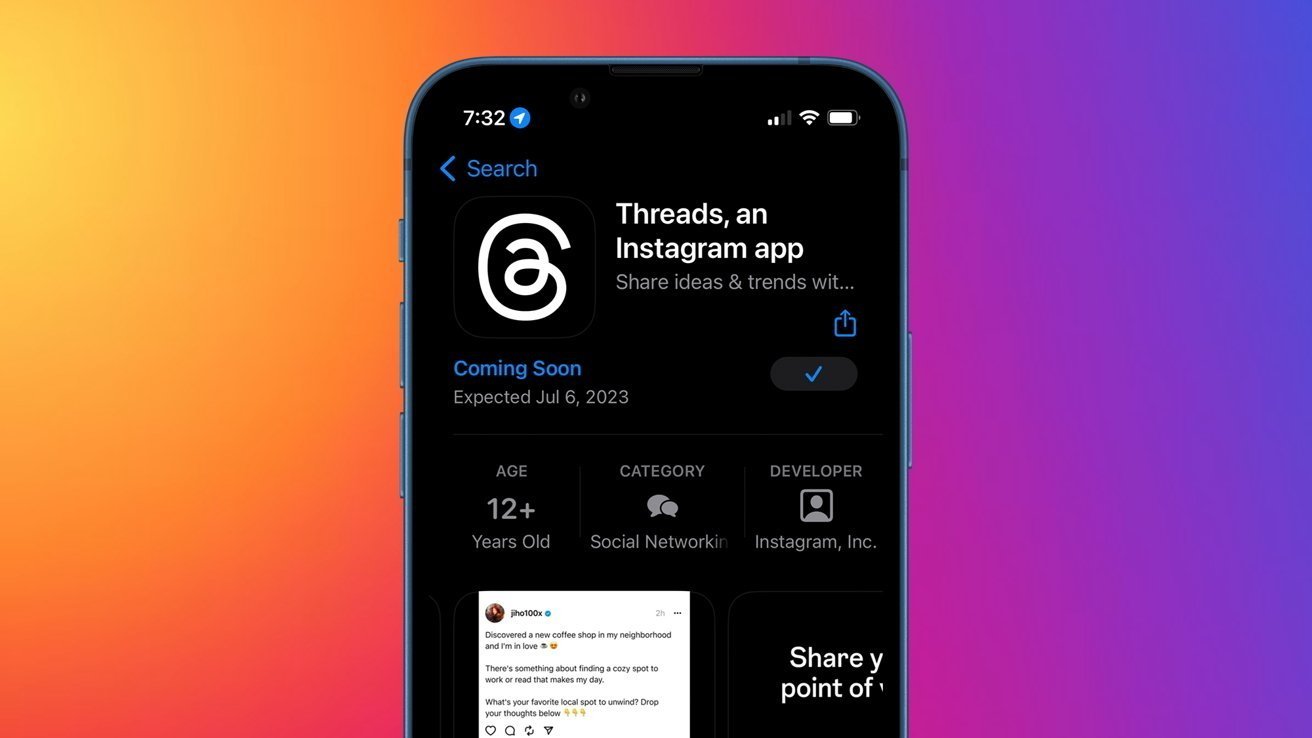Meta is going to extensive lengths to prevent users in Europe from accessing Threads, including attempts to use the service while using a VPN.
Meta has seen massive success for Threads, its Instagram-connected take on Twitter, with over 100 million accounts now set up on the social platform. While Meta may yearn for even more users, it's working to make sure that they don't come from the European Union.
While Meta hasn't officially launched in the EU, users within the bloc are discovering that they are being prevented from being able to use it. This includes attempts by users to circumvent geolocation blocks by using VPNs.
Users have, ironically, taken to other platforms like Twitter to raise the issues, reports TechCrunch. This includes being unable to access existing posts or to publish new content to the platform, even if they previously logged in successfully.
Meta has since confirmed that it is actively blocking alternative methods used by EU citizens to use Threads. In a statement to Matt Navarra on Twitter, Meta states "Threads is currently unavailable in most European countries and we have taken further measures to prevent people from those countries accessing threads."
The company insists "Europe continues to be a very important market for Meta and we hope to be able to bring Threads to more countries in the future."
Meta's decision to leave EU users out in the cold is almost certainly due to privacy rules affecting companies working in affected countries. The Digital Markets Act and Digital Services Act can have a considerable impact to how Meta moderates content, operates algorithms, and its collection of user data for advertising purposes.
There's also the matter of the EU agreeing to a proposal allowing transatlantic data transfers of EU user data to U.S. servers to happen once more, a legal issue that Meta was fined $1.3 billion over in May. However, while it has been agreed to, the proposal may still face legal pressure from privacy advocates.
Given all of the legal headaches associated with EU privacy rules, Meta and Instagram probably want to avoid as much trouble as possible for its new service.
 Malcolm Owen
Malcolm Owen







-m.jpg)






 Mike Wuerthele
Mike Wuerthele

 William Gallagher
William Gallagher
 Thomas Sibilly
Thomas Sibilly
 Wesley Hilliard
Wesley Hilliard
 Marko Zivkovic
Marko Zivkovic










2 Comments
What good is a VPN if they can detect it and block it?